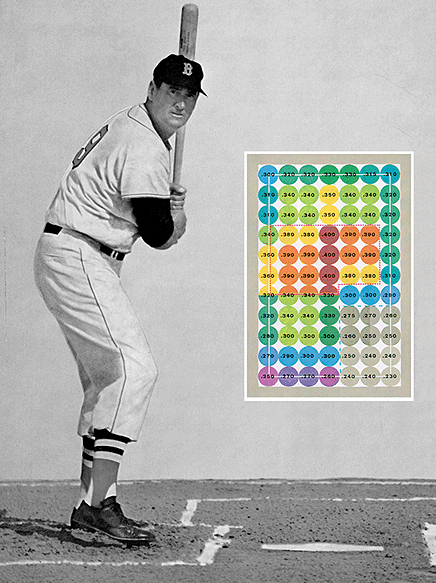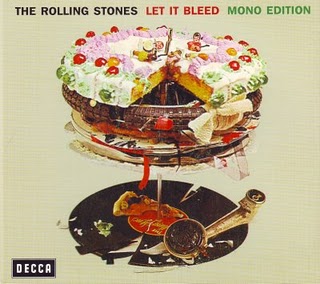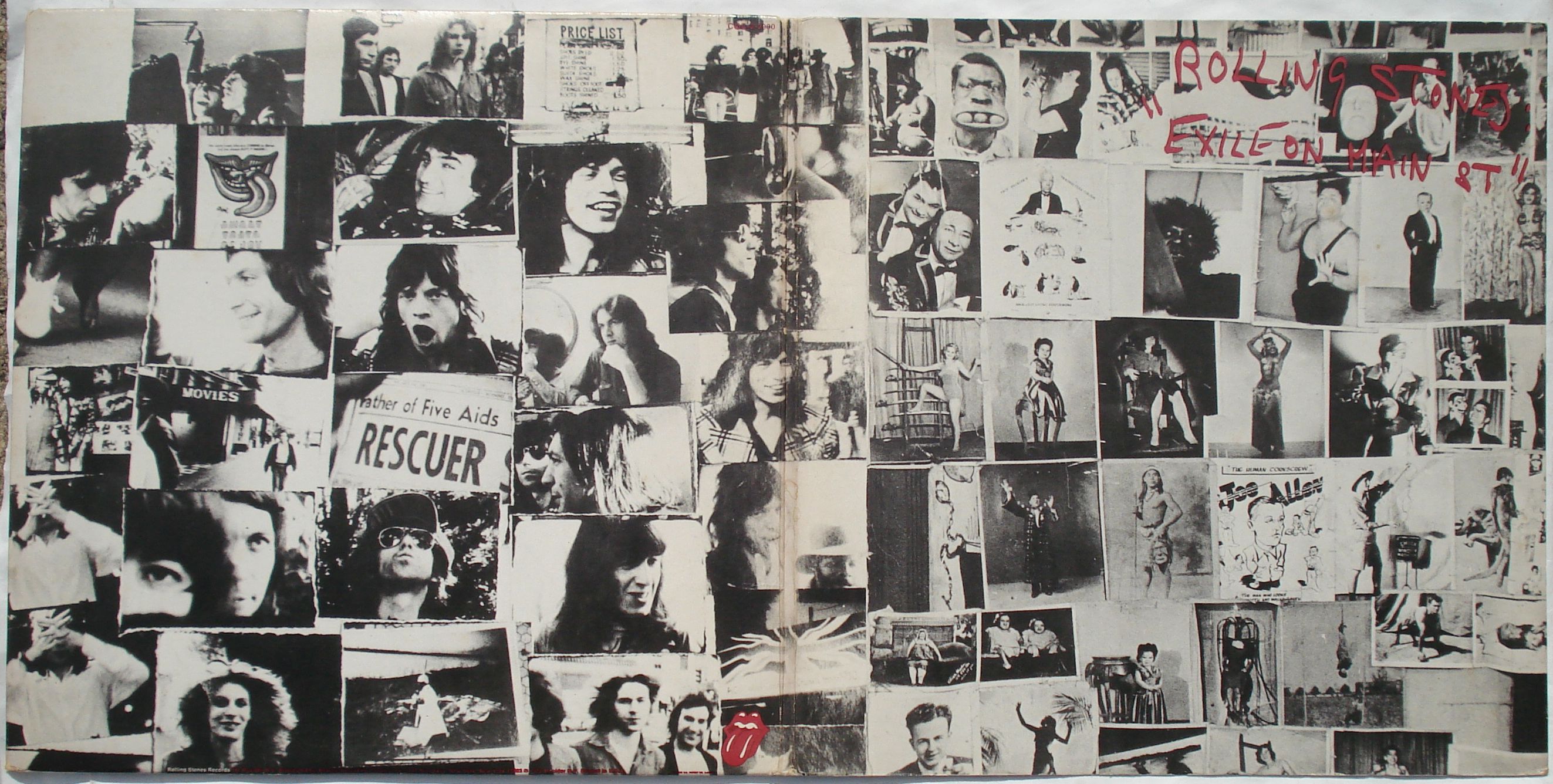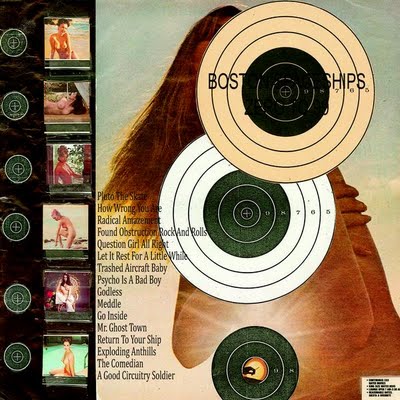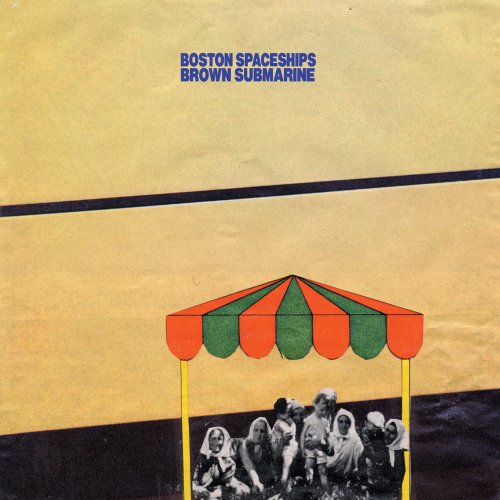Let’s face it: Mr. Moderator has exquisite taste in music, but I’ve know the guy for a long time. I know he’s got a few holes in his game. While he’s away, see if you can determine the five most egregious holes in Mr. Mod’s otherwise exquisite taste in music. His holes can be big or small, from entire genres or artists to specific albums or tracks. If he were here he would ask that you hold nothing back. On his behalf, I thank you.
How deep should first musical impressions cut? Is there more in a track that may have first caught my ear? Do I clutch too tightly to the romantic notion that no record should ever sound different than how I first heard it, or more accurately the collective power of the record’s first 100 spins? It’s not like I listen to my childhood vinyl on the same record player I had as a kid, but I run up against such questions any time I pick up a reissue of a beloved album that’s been remastered or released in its original mono form, a German true stereo mix, or what have you. Like my friend who can’t get past any digital remastering of “Satisfaction” in which you can hear the acoustic guitar and piano, which were buried in the rhythm section on the vinyl versions of the song we grew up with, I tend to get a little attached to how records sounded when I first heard them.
I recently downloaded a rare mono mix of The Rolling Stones’ Let It Bleed, my favorite post-Brian Jones Stones album and, from my years of spinning it on vinyl, the best-sounding Rolling Stones album. I’ve never been that much of a purist about mono vs stereo mixes; in fact, any purism I hold in this regard is centered around my personal experience. If I first heard an album in mono, then mono is the “correct” format, and vice versa. The mono mix of The Kinks Are the Village Green Preservation Society, which was included with stereo version on some CD reissue from a few years back, does not impress me. I continue to hold true to the magic of the flimsy, $2.99 Spanish vinyl pressing I fell in love with after bringing home from the Temple U. bookstore in the early 1980s.
Continue reading »
It’s not only a box of 2009 Robert Pollard record releases that I’m behind on reviewing but more, much more once-new (in some cases) material that’s been submitted by independent musicians who are probably more professional in their musical pursuits than I am in any of my own pursuits as a rock journalist. In rapid-fire format, let’s see if I can’t catch up and give these artists their hard-earned and overdue due!
Gemini Wolf, Synchronized Eyes
Let’s kick this off with maybe the most egregious of my backlogged submissions for review. This CD was sent to Mr. Moderator about a year ago. He promptly turned it over to me, at which point I quickly delighted in spinning it and then more quickly lost the CD under a pile of empty pizza boxes and old sports pages. As my 9-year-old nephew said to me recently, “It’s good to lose things in your own house, isn’t it?” Yes, it is. Stay in one place long enough and you’re bound to find all that you’ve lost.
This same nephew, then 8 years old, was visiting when I first began listening to this CD. “It sounds like Irish music from outer space,” he said. Ah, from the mouths of babes! Continue reading »
The continuing task of catching up on the big-ass batch of Robert Pollard-led releases Kpdexter sent me marches on with an early 2010 solo album, We All Got Out of the Army. In my overdue review of Boston Spaceships’ Brown Submarine I lamented that the musicians on that album rarely “dug in” and “created their own shot,” that is, pushed the arrangements to unexpected places. That’s not the case on this solo release, done with producer/frequent partner-in-crime Todd Tobias. Across 17 concise, mostly energetic songs, the arrangements are not afraid to take it to the hoop with the surgical focus of the Cobra Verde-influenced Guided By Voices albums. I dig!
Robert Pollard, “We All Got Out of the Army”
Robert Pollard, “I’ll Take the Cure”
Songs like “Post-Hydrate Update” and the title track don’t pussyfoot around. The strong opening rhythmic gestures and discordant touches work well to support Pollard’s UK psych/prog phrasing. Even songs with a lighter touch, like “I’ll Take the Cure,” have a whiff of the Canterbury scene. This is not to say that Pollard’s finally gone prog, but on this album, with the arrangements clanging around him, he once more fulfills his post-punk, art-rock side, sounding like 154-era Wire if those guys could have removed the 4″ x 4″ from their collective ass.
They had to go and make it longer, didn’t they? The Rolling Stones couldn’t leave the legacy of the sprawling Exile on Main Street alone. In this newly remastered, expanded edition rock’s most notorious tax exiles add 10 previously unreleased/unfinished tracks. Shotgun-worthy Don Was helped shepherd these outtakes into the 21st century, with Mick Jagger writing new lyrics and adding new vocal parts, in some cases. Considering that the Stones have been reviving leftover jams as new material for more than half their career (eg, “Start Me Up” had been sitting around for 6 years before being revised and released as the band’s modern-day theme song), why didn’t they just release these tracks as a new Stones album and do the necessary work of trimming Exile on Main Street down from a flabby double album to killer EP it essentially is? Lord knows this collection of 10 revived tracks, kicking off with the funky “Pass the Wine (Sophia Loren)” and the pleading “Plundered My Soul,” would have been the band’s “best album since Exile.”
OK, the newest “best Stones album since Exile” wouldn’t have been that easy to concoct – some of these outtakes are early versions of eventual songs from the album. I especially dig “Good Time Woman,” an early sketch of what would become the sublime “Tumbling Dice,” a song I could bring to my lab and never cease to find fascinating in the way each part contains the code for the whole of the song. Surely there would be dozens of sketches left on the floor of Compass Point Studios for them to fill out side two. Then the Stones could have really shaken up the rock world by taking a washcloth to the abundance of blackface greasepaint smeared across the two LPs of the original release.
Considering how much slack I’ve cut lesser bands over the years, it may be unfair to find fault the Stones for dragging down what could have been the greatest EP in the history of rock with a bunch of overblown gospel-blues jams and fun rave-ups, but we really need to spend any more time stoned and nodding along to Bobby Keys’ sax solo on “Casino Boogie?” Does making it through “Sweet Virginia” earn us a hole-punch on our Educated, White, Middle-Class Dude Who Really Digs American Traditional Music card? How many times does that card need to be punched before we’re awarded an actual album of American traditional music?
Continue reading »
Continuing with the prescribed listening order from Townsman Kpdexter, it’s time I catch up on my overdue record review of Boston Spaceships‘ third release of 2009, Zero to 99. The first few times I spun this album it was among my least-favorite of the batch of 2009 Pollard releases that my man sent me, but over time some of the things I initially perceived as impediments to my enjoyment of the album became points of entry.
Boston Spaceships, “Trashed Aircraft Baby”
Unlike the first two Ships (as hardcore fans call them) album, Brown Submarine and The Planets Are Blasted, Zero to 99 is less focused and a bit noisier, more like what I’d come to expect from a typical Guided By Voices album. The opening track, “Pluto the Skate,” is the kind of brief F-U that Pollard left behind on the first two Boston Spaceships albums. “Trashed Aircraft Baby” revives use of his beloved Radio Shack mic. What sounds like some cheap bobo bass straining the limits of an early ’80s model Peavy amp stomps all over “Psycho Is a Bad Boy.” As I got acquainted with this album after listening to the first two I found the tight-ass in me missing the Quality Control processes that helped those first two albums go down so easily.
Continue reading »
The shameful, necessary task of catching up on my stack of 2009 Robert Pollard-associated record releases continues. Per Townsman Kpdexter‘s instructions my controls are set for Boston Spaceships‘ debut album, Brown Submarine.
Boston Spaceships, “Psyche Threat”
When news of this album first hit I was surprised that Pollard was starting a new band. After all, hadn’t he released 203 albums with Guided By Voices and another 144, since the waning days of GBV, as a solo artist? Why not continue on the solo route, I thought. If he was going to have a new band I was hoping it would be a full-blown prog-rock affair, a launching point from one aspect of his large body of work that would allow him to fully explore that side of his songwriting. Someone interesting needs to don the dashiki and tackle that beast before too long.
As it turns out, Boston Spaceships would present a streamlined take on a lot of what I liked best about GBV: the forearm-pumping rock anthems with a touch of Who Sell-Out-inspired psychedelia. A track entitled “Psyche Threat” particularly satisfies Pollard’s interest in that aspect of The Who’s sound with fast-moving chord intervals and a hint of what sounds like one of John Entwistle’s french horn parts. Quick-strummed, Diddley-esque acoustic guitar rhythms propel “Ate It Twice,” wrapping up with a little Yardbirds-style rave-up. As on the band’s later 2009 release, The Planets Are Blasted, drummer John Moen keeps spry, focused rhythms. In some ways this makes Pollard’s music sound more “normal,” but considering that he seems like he’s been trying to make a form of Classic Rock since the last few GBV albums, if not earlier, why shouldn’t the rhythms gel more consistently than they used to?
Boston Spaceships, “You Satisfy Me”
Another thing that strikes me about these Boston Spaceships albums is that Pollard’s voice doesn’t sound as if it’s running through a Radio Shack mic and cheap, ’80s digital delay, as I grew accustomed to hearing it on countless GBV releases and his first couple of solo records. Pollard doesn’t couch his voice in any new aural dressing, but his voice projects just fine without it on a poppy, straightforward song like “You Satisfy Me.” What I’d really like to hear one of these days, on one of these more-focused Pollard releases, is a lead guitar player (or other musician) who can dig in and “create his own shot,” to use a basketball analogy. The lack of a soloist is not missed on a Buzzcocks/Beulah tune like “Ready to Pop,” and Mick Ronsons aren’t falling off trees, but with all the power chording Pollard favors in his music I’d like to hear someone in his band grab the fretboard and go for the gusto more often. The album-closing “Go for the Exit,” for instance, hints at a steppin’-out guitar solo, but it’s buried. The rhythms are there, Bob, now let it rock!

